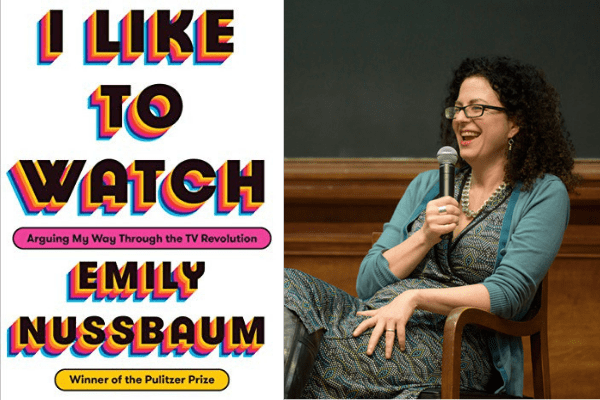
In contrast, reductive, “guilty pleasure” television embraced the romantic comedy - it was feminine, frivolous, and less important.Ī show like “The Sopranos,” Nussbaum offers, was cool. Television considered high-brow or transcendent was gritty, violent, masculine. The question at the heart of it is this: What types of television are taken seriously, and why? The answer she arrives at is, perhaps unsurprisingly, one revolving around gender. Woven through the collection is a thesis on television, one that both celebrates the medium and rips it apart.

It has something for everyone: musings on presumed TV royalty a la “The Sopranos,” sitcom trailblazers like “Black-ish,” even pieces on “Sex and the City” and “Vanderpump Rules.” Nussbaum’s critical voice is all candor, flitting from playful to biting, self-deprecating to bluntly self-critical as she takes us through her world of the small screen. It’s a standard collection of essays, compiling some of Nussbaum’s best television criticism - from her earlier work at New York Magazine to her ongoing work as the television critic at The New Yorker.

A t first glance, Emily Nussbaum’s “I Like To Watch: Arguing My Way Through the TV Revolution” feels familiar.


 0 kommentar(er)
0 kommentar(er)
